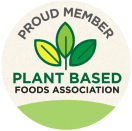Pro- and Postbiotics Gather Speed in the Wake of COVID-19
Gut and Immunity-Boosting Ingredients Are Crucial for Consumers Seeking Out Health-Supporting Products.
With an increased focus on health and wellness globally, the demand or functional ingredients that support immunity and well-being continues to grow. A post-pandemic world may seem some way off, but one thing's for sure - consumers will be even more aware of their health and how to boost it.
According to John Quilter, vice president of global portfolio Pro-Active Health at Kerry, the pandemic has resulted in a surge of preventative behaviors to protect consumer health, including an increased interest in nutrition.
"However, this is an acceleration of a trend that predates the pandemic rather than something that happened overnight," he notes. "Markets for functional foods have been growing for many years, largely driven by consumer demand for well-researched ingredients, such as probiotics.
Odile Conan, technical innovation lead at NZMP, agrees that this follows an already established emphasis on consumers' health and wellness in recent years. "As a consequence of the pandemic, consumers are now taking a more proactive approach in protecting their health and strengthening immune systems to fight off illnesses - eating healthily, exercising, and getting sufficient rest. This behavior is now consistent throughout the year, rather than historically being a focus for the winter flu season.
The top changes consumers are making to their diets to improve immune health include increasing their intake of protein and eating more fresh food and vegetables, which helps with fiber and micronutrients, she adds.
Pandemic Puts Focus On Health
A recent survey from Kerry found that 50% of US and UK consumers consider "contains probiotics" an appealing statement on food and beverage products, rising to 67% among consumers aged 25 to 34.
"The youngest consumers were also the most likely to consider a product healthy if it contains probiotics. Crucially, awareness and interest are translating into purchasing activity," notes Quilter. "In the US, 67% of consumers now take probiotics for a healthy gut, 49% for general well-being, and 43% for immune health.
Commenting on behavioral changes since the pandemic, Quilter says there's clearly been renewed focus on the benefits of probiotics since the start of the pandemic.
"By the mid-point of 2020, more than 20% of consumers globally reported that they had become more conscious of their digestive health as a result of COVID-19, while 75% associated probiotics with immune system support.
Meanwhile, Joe O'Neill, vice president of sales and business development at A&B Ingredients, flags the "undeniable connection" between the COVID-19 outbreak and the growing consumer interest in products from the health and wellness sector.
"The growing demand for probiotics that we see in the market can be attributed to a shift in consumer attitude and purchasing intent based on the rising trend of holistic and preventative healthcare.
This can therefore explain the increasing demand for probiotics that we are witnessing right now. Proper nutrition and probiotic supplementation can strengthen and support the body, making it more capable of withstanding illnesses.

Gut health has consistently been one of the top categories within the wellness industry because many people suffer from poor digestion.
Good For The Gut
Research has proven that we can resist viruses naturally if we focus on preventative care and our digestive and immune health, O'Neill outlines. "For example, many healthcare professionals recommend taking zinc and probiotics as part of an immune defense regimen and preventative healthcare routine.
According to Alexis Collins, product manager at Stratum Nutrition, digestive health is on many consumers' minds - and for good reasons. "Studies have shown that more than 60% of people in the US experience gastrointestinal issues in any given week. Globally, about one-quarter of people suffer from lower digestive problems," he explains.
"The majority of consumers surveyed across 25 countries around the world recognize that good digestive health is linked to good overall health. About 70% of the immune system is located in the gut, where a vast and complex ecosystem of microorganisms reside.
Led largely by probiotics, the recognition that the gut microbiome has an outsized influence on human health has driven a decade-long boom in the digestive health category. Consumers are continuing to become more educated on the benefits of a healthy gut.
In addition to just feeling "good" with optimal digestion and regularity, consumers understand the links between gut health and immunity, stress, and more health categories, Collins underscores.
"Post-pandemic, consumers are even more aware of the link between the gut microbiome and immune health, which is likely the leading driver of demand for probiotics, currently. However, gut health is still a top category of supplement purchases," he reveals.
"Gut health has consistently been one of the top categories within the natural wellness and dietary supplement industries because so many people suffer from poor digestion and its consequences," adds Nena Dockery, scientific and regulatory manager at Stratum Nutrition.
Diet, stress, medications, and lifestyle habits all contribute to many individuals who have at least occasional digestive upset.
"Notably, most consumers who purchase either natural products or digestive aids are looking for immediate relief and are unaware of the long-term consequences of even minor inadequacies in the digestive process," she flags.
There has been "a slow but steady increase" in understanding how vital gut health is to overall health. Along with that, knowledge has come to recognize the role that the gut microbiome plays in maintaining the intestinal bacterial balance necessary to support gut health.
"Integral to this is the gut immune-inflammatory response," Dockery continues. Many of the most prevalent chronic diseases that plague modern society can be classified as inflammatory disorders, which may arise from impaired immune functions due to alterations in gut microbiota.
Plant-Based Probiotics
Traditionally, yogurt and dairy products have been some of the best-known sources of probiotics. However, there is a growing trend among consumers who are now incorporating more plant-based foods into their diet.
"The plant-based diet is being chosen for its nutritional benefits and sustainability reasons over the consumption of animal-based foods," explains O'Neill at A&B Ingredients.
"Vegans and many vegetarians are interested in truly plant-based foods, including those containing probiotics. Non-dairy yogurt and beverages supplemented with a plant-based probiotic, such as PA5051 (Pediococcus Acidilactici), meets that need while providing all the nutrition and immune support benefits of traditional dairy products.
"Plant-based probiotic, PA5051, has several advantages over other well-known probiotic strains. We have demonstrated that PA5051 is less sensitive to oxygen exposure and more resistant to heat than Lactobacillus and Bifidobacterium, he notes.
"These features position its use as a shelf-stable probiotic. We have been able to show its increased viability and shelf life stability in dry food applications, like nutritional supplements and dry-powder protein.
It is also more resistant to an acidic environment. The probiotic can naturally survive the stomach's harsh environment and eventually deliver live bacteria through the digestive system to reach the small and large intestines." Another proven benefit is PA5051's ability to act as an immune modulator for host immune responses," O'Neill adds.
Delivering Probiotics
The applications for a plant-based probiotic, like PA5051, include traditional probiotic-rich foods, such as yogurt and dairy. "However, there is an untapped market of opportunity to add vegan probiotics into plant-based foods, like non-dairy yogurts, cheese, milk, even ice cream," says O'Neill. In addition, such probiotics can be added to chocolate, coffee, soy sauce, and even pet foods.
According to Quilter at Kerry, probiotics are now appearing in everything from frozen foods to coffee. There is untapped potential for probiotics in many F&B categories, but one that is particularly interesting is tea, he flags.
"Probiotic claims in tea have seen steady growth in recent years, largely because spore-forming strains have a highly resilient structure, allowing them to withstand harsh processing conditions, including the exposure to boiling water inherent to the tea-making process.
Recent examples of products to take advantage of this include Vahdam Teas India's Digestion Superfoods Elixir, a probiotic tea with turmeric, ginger and other botanicals.
Beyond Traditional Probiotics
There is a significant interest in getting probiotics into more unique and tasty delivery formats, which "can be limiting" when you have to watch out for live strain survival, says Collins at Stratum Nutrition.
"Consumers are looking for alternative delivery formats. Even the most enthusiastic supplement user can get pill fatigue easily. Gummies, drinks, powder mixes, and bars with researched ingredients are all formats consumers seek and incorporating probiotics into these is a boon, but, so far, only spore formers can stay viable in most alternative deliveries.
This is where postbiotics have "enormous potential in the gut health category," according to Collins.
"Postbiotics consist of inanimate microbial cells and their components that confer a health benefit to the host. Consumers will have to be educated on this new term. Still, the postbiotic trend is already taking off fast outside the US, largely because these are ingredients that can give the same health benefits as probiotics. And, without any of the stability challenges of probiotics," he explains.
Defining Postbiotics
Postbiotics have recently been defined by the International Scientific Association for Probiotics and Prebiotics (ISAPP). The ISAPP specifies postbiotics are derived from microorganisms removed from the fermentation medium from which they are grown and treated to inactivate them, usually through heat.
Dockery says the resulting microbial cell mass consisting of whole cells and cell fragments can be dried and prepared as the postbiotic or alternatively returned to the fermentate, which contains an abundance of nutrients and metabolites, before processing into the dried preparation.
"To be classified as a postbiotic, an ingredient must confer a health benefit; therefore, just heat-treating a probiotic does not make it a postbiotic. Its benefits in the postbiotic form must be substantiated by clinical research," she outlines.
According to Dockery, one ingredient that "perfectly fits the definition of a postbiotic" is LBiome (Lactobacillus LB). "This postbiotic has been used in Europe for over one hundred years as a digestive aid long before the origin of the term 'postbiotic.' Lactobacillus LB contains the heat-treated cellular biomass as well as the fermentate generated by Limosilactobacillus fermentum and Lactobacillus delbrueckii, two human-derived bacterial species.
It is supported by an impressive research portfolio that includes support for its use as a digestive aid in adults and children of all ages. The bulk of the studies are clinical trials focusing on digestive challenges," she explains.
The most versatile of all digestive aid supplements are postbiotics, Dockery highlights. "Since they are not live microorganisms, they can exert the benefits of delicate human-derived species without the risks of diminished activity resulting from poor storage conditions or gastric transit.
Postbiotics can be formulated into tablets and capsules, but they can also be placed into conventional foods and beverages as well as chews, gummies, and gels," she concludes.
This article was originally published in Nutrition Insights July/August 2021 Issue, page 14.
Read the full issue of Nutrition Insight here: https://www.foodingredientsfirst.com/twofi/supplement-innovation-accelerates.html
Learn more about PA5051, Pediococcus Acidilactici plant-based probiotics.
How Can We Help?
We are here to help you with development of new and improved food products. Our technical service and sales teams can assist you in choosing the right ingredients best suited for your applications.
Product CatalogContact Us
